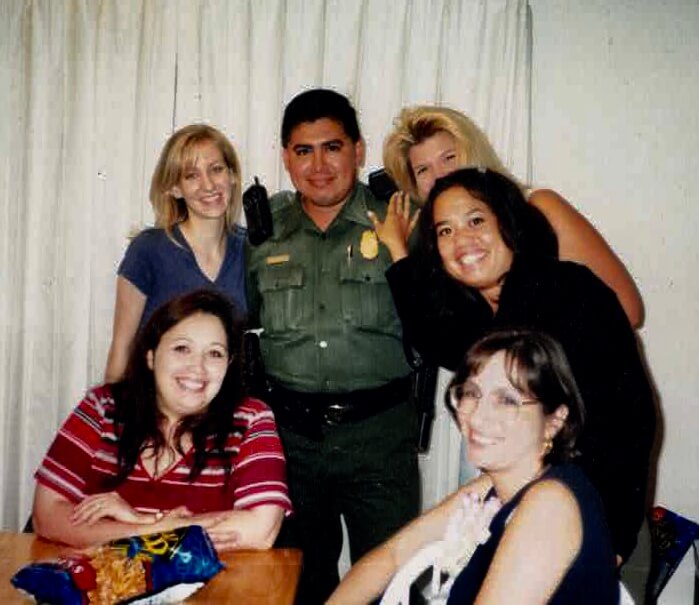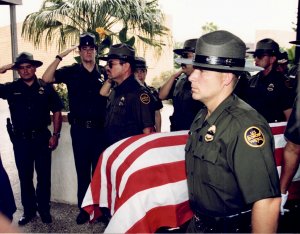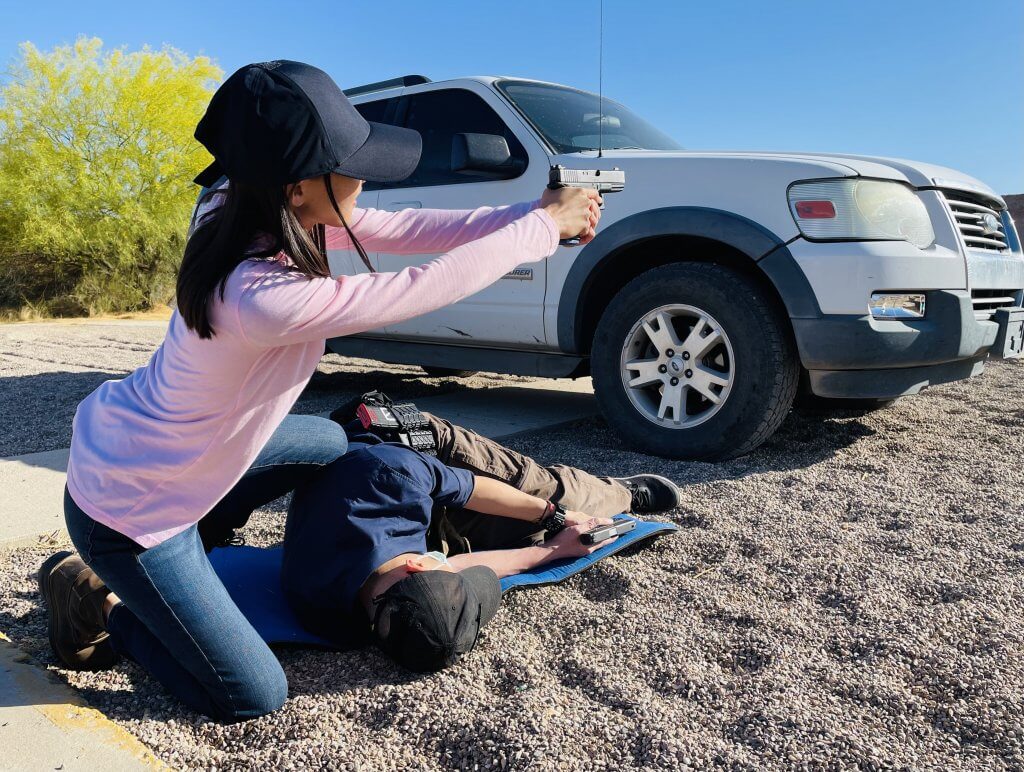In Praise of Law Enforcement Spouses

“Is George home yet?”
It was our friend Ronnie, who was married to one of my fellow agents.
It was mid-morning. I had gone to work at ten the previous evening, and had not yet come back. But that was not unusual.
“No–Why?”
“There’s been a shooting. Two agents have been killed. Turn on your TV. It’s all over the news . . ..”
This was the call every law enforcement spouse has always dreaded getting. And if you’re married to a cop long enough, you will get at least one like it–probably several.
When you first marry a law enforcement officer (LEO), or a soldier, you know, in the back of you mind, it’s a possibility.
Over a hundred law enforcement officers are killed on duty every year–many by irresponsible motorists at traffic stops. Far, far more are injured on duty. Felonious assaults on police have been going UP, not down, for decades. There’s been an exponential increase in the last year, between the media vilifying LEOs, and COVID making booking into jail a rotating door.
And getting killed on duty is perhaps not the worst thing that can happen to a law enforcement family. At a Street Survival seminar I attended, we saw video of a cop who was NOT killed. He had been leaning next to a basement window, trying to talk a suicidal man into getting help, when the “EDP”–emotionally disturbed person–stuck a pencil through the window screen into his eye and into his brain. The video was of the former cop, a drooling vegetable for the rest of his long life–with his family. They played those painful images for a long time, to let the message sink in:
Go home to your family.
That used to be Rule Number One in law enforcement. No matter what else happens during your shift, go home at the end of it.
Dealing with uncertainty, of course, is not the only difficulty of being a law enforcement spouse. Successful cops tend to have Type A personalities–the Alpha Wolves, as it were–which can make them hard to live with.
Cops get lied to all the time, and after a while conversations with your spouse can seem, to you at least, like interrogations.
And then there’s “Superman, Super Putz” syndrome. Cops sometimes return home from their shift still amped up on adrenaline, but usually it’s the opposite. They are exhausted. When you’ve been saving the world, leaky faucets don’t seem all that important. All these factors, and more, can make cops hard to live with.
Numbers killed on duty are easy to track. Far more often, cops are hurt, sometimes badly enough that they can no longer be the only thing they’ve ever wanted to be: a law enforcement officer.
I had one cop friend, Jamie, who was cuffing a subject when the bad guy “spun” on him. Jaimie’s thumb got caught in the handcuff, permanently wrecking his thumb, and therefore, his career. All Jamie had ever wanted to be when he grew up was a policeman. Now he can never be that again, because of some idiot who couldn’t accept the fact that his poor life choices were going to lead to some jail time.
When your former LEO spouse comes home, broken in body and spirit and rejected by his or her profession, you will be left to pick up the pieces, and try figure out how to make ends meet till–if you’re lucky–a disability pension comes through.
And now, civilian review boards who’ve never had to make a split-second life or death decision are deciding, in air-conditioned rooms after many, many slow motion instant replays that lasted maybe three and half seconds, that those first 7 shots fired before the bad guy slowed down were clearly justified–but they deem that 8th and final shot “unnecessary,” so the cop should be indicted for homicide.
Seriously.
So in addition to the unforgettable trauma of the incident itself, the cop’s entire family must bear the expense and uncertainty of a murder trial–for doing what they were paid to do, and nearly getting killed in the process. Rabid activists who were not there when it happened will “dox” their family, posting photos of their children, where they go to school, their home address, on line. They will receive death threats. For doing their job.
Activists don’t paint murals of dead law enforcement officers, much less their spouses, on city walls.

Picture this: I once had to face a LE spouse and try to explain to him how his wife got shot, and I couldn’t save her. After we cried on each other’s shoulders, he collapsed to his knees, and began touching the legs of my uniform.
“Oh, baby, oh baby,” he whispered, reaching for the last part of his beloved wife he could see: her dried blood.
I had knelt down in the puddle trying to breathe life into her.
After that, I drove to the hospital to check on the status of a Cameron County Corporal Raul “Rilo” Rodriguez Sr., who had been shot through the chest in the same gun battle. He was still “under the knife” in surgery several hours later.
I had never met his spouse or family. They were sitting silently in the OR waiting room. I approached her from the side, introduced myself, and said how sorry I was that this horrible thing had happened.
She turned to face me. Her eyes travelled slowly up my disheveled, blood-soaked uniform, till they met mine. She smiled at me.
Actually smiled.
It was a sad smile–but the gift of a smile nonetheless. Then she sighed and said, in a calm, matter of fact voice,
